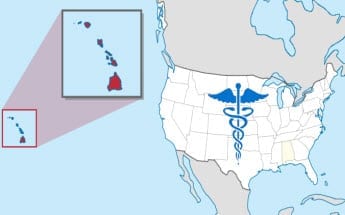Cancelled policies become more expensive in Hawaii
Hawaii health insurance officials have approved rate increase proposals from some of the state’s largest insurance providers. The state’s Insurance Division has been investigating rate increase proposals to determine whether they are necessary or not and has seen a need for higher rates as insurers continue to juggle several financial issues. The new rates are primarily for insurance plans that were set to be cancelled due to the provisions of the Affordable Care Act. Several insurers have moved to continue honoring these policies, but these policies will be more expensive than they had been before they were cancelled.
Insurers win approval for rate increase proposals
 According to the Insurance Division, approximately 11,000 plans managed by Kaiser will see rates increase by 9.2%, with 26,300 small business policies seeing an increase of 5%. HMSA has also been allowed to increase rates for 14,300 individual policies by 7.5%, with rates for the company’s 118,000 small business policies growing by 6.8.
According to the Insurance Division, approximately 11,000 plans managed by Kaiser will see rates increase by 9.2%, with 26,300 small business policies seeing an increase of 5%. HMSA has also been allowed to increase rates for 14,300 individual policies by 7.5%, with rates for the company’s 118,000 small business policies growing by 6.8.
Higher rates will help insurers manage financial issues
Insurers claim that higher rates are needed in order to better account for the rising costs associated with medical care. Higher rates will also help insurance providers manage the new taxes and fees that are associated with the Affordable Care Act. Hawaii health insurance officials believe that the rate increases will not present any significant financial stress to policyholders in the state, but those looking for alternative options may be able to find coverage through the state’s insurance exchange.
Hawaii health insurance exchange may be a viable alternative to the private market
The Hawaii health insurance exchange began open enrollment on October 1, 2013, and has been facing several challenges concerning its engagement with consumers. Technical difficulties have prevented many from enrolling for coverage, but the majority of these problems were resolved in the early weeks of December. State officials are noting that consumers can receive financial aid for policies purchased through the state’s exchange which can help offset the costs they see from health insurance coverage.
